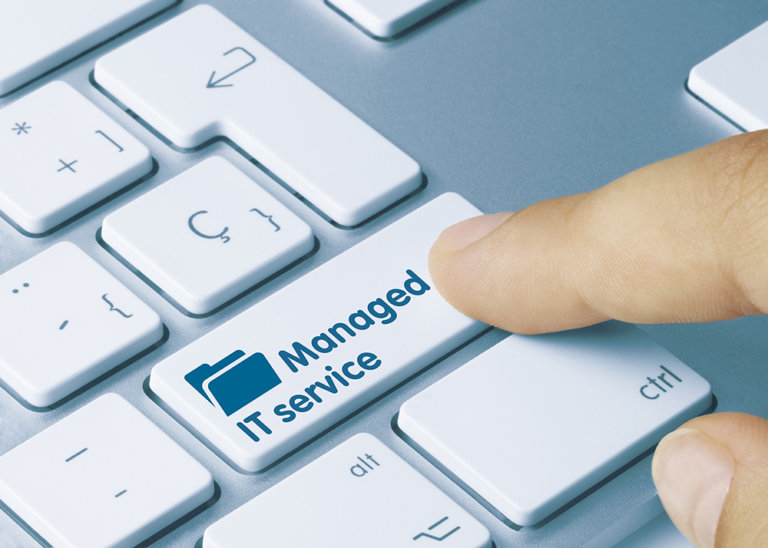Normal
0
false
false
false
EN-CA
X-NONE
X-NONE
How to Prepare for Disaster Recovery in the Cloud
Any business can suffer material impacts from system failures, power or network outages, cyber attacks, accidents, and natural disasters. If you haven’t planned for disaster, it’s already too late to recover.
Data is a critical resource for contractors now more than ever. That means that business continuity planning and anticipating how you’ll recover from a disaster should be considered key business strategies. You’ll want to ensure your company can continue to function and thrive even when there are unexpected interruptions to your IT assets.
A simple data backup is no longer enough, but the good news is that cloud computing can make disaster recovery planning easier and simpler.
First, let’s define some key terms:
What is business continuity?
Advanced preparations made by an organization to ensure that it can continue up and running during unexpected interruptions.
What is business continuity planning?
Business continuity planning is the process of creating a system of prevention and recovery from potential threats to a company. The plan ensures the protection of people and assets, while maintaining their function in the event of a disaster.
What is disaster recovery?
Disaster recovery means regaining access and functionality of your company’s IT hardware, applications, and data following a technology interruption. A disaster recovery plan allows businesses to restore their most critical IT services and business operations following an emergency.
While no company can remove all of the risks, you should have an effective strategy to mitigate the effects of a system or data outage.
Make cloud computing part of your business continuity planning.
Cloud computing can be an ideal asset in disaster recovery and business continuity. Because cloud computing uses the internet to run applications and store data, your most critical data can be backed up and easily recovered.
Moreover, data storage and the delivery of key applications over the internet means that these functions are distributed, rather than localized, which means that it’s a safer method for storage overall.
Cloud computing provides critical system redundancy and replication of your data. If there’s a smaller outage or interruption, cloud customers are likely to see a 100% restoration, and fewer interruptions than a competitor with an on-premise data interruption.
Using the cloud in your disaster recovery planning means that you will more likely return to full operations faster and more efficiently than if you had on-premise IT systems.
Your cloud provider is responsible for the core resilience of the infrastructure that they provide, which means that they are key partners in maintaining business continuity for their customers.
Because you’re outsourcing the risk and responsibility for the management and maintenance of your data, your cloud provider will be a pillar of support if you have to recover from a disaster. You can work with your cloud provider to identify your risks and learn about their disaster recovery precautions and average recovery times.
Your cloud provider can help you to identify your Recovery Time Objective and Recovery Point Objective so you are able to continue modified business operations even if you experience a disaster. Recovery Time Objective is the maximum amount of time your infrastructure can be down before there’s damage to your business operations. Recovery Point Objective is the maximum amount of data that can be lost in a service disruption.
Here are five advantages to cloud computing as part of your disaster recovery plan.
- Proactive monitoring so that your IT systems are managed to minimize interruption and thwart malicious attacks.
- Faster recovery of regular operations from small or even significant interruptions.
- Fast rollback of any problematic release.
- Redundancy and replication of data so that data recovery is most likely 100% complete.
- Peace of mind from having a cloud partner to support your business continuity objectives.
Conclusion
It’s crucial to have a business continuity plan that includes a disaster recovery program so that you will be able to continue operating your business, even in catastrophic situations. With a plan for business continuity your company can be resilient despite difficulties in front of you. Find out more about how eCMS (https://computerguidance.com/products/) in the cloud can be a part of your business continuity and disaster recovery strategy.

